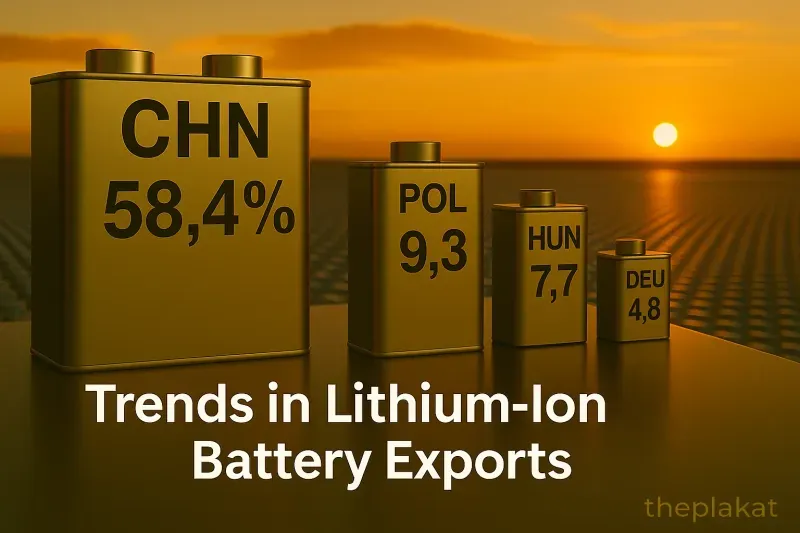Published
in Economy
With the increasing demand for cleaner energy solutions, lithium-ion battery exports have reached new heights in 2023, dominated by Asian and European countries.
At the forefront, China commands an overwhelming 58.37% of the export market for lithium-ion batteries. The country's dominance is attributed to large-scale production capabilities and extensive technological advancements. China's market leadership serves its broader goal to lead in global electric mobility.
European countries, particularly Poland and Hungary, have stepped-up efforts in the battery industry, controlling significant portions of the export share. This progression is motivated by the European Union's focus on innovation in energy storage technologies as part of its sustainability goals.
While South Korea holds 4.22% of the export share, its companies continue to innovate in the energy sector, catering to the needs of advanced consumer and industrial applications globally. South Korea's position is bolstered by strong investments in research and technological inflow from its conglomerates.
The rest of the world, albeit contributing less than 1% each, plays a foundational role in global supply chains for lithium-ion batteries. These nations are often integral in raw material supply and regional manufacturing, emphasizing their necessity in the broader battery production ecosystem.

China leads the export market with a dominant share of 58.37%.
South Korea contributes 4.22% to the market, leveraging its technological expertise to stay competitive.
Poland and Hungary account for 9.30% and 7.70% of the market, respectively, highlighting Europe’s growing significance in this sector.
The percentages indicate increasing global demand for sustainable energy storage solutions such as those provided by lithium-ion batteries.